- 필자 브렛 콜은 영국 ‘이코노미스트’ 한국 특파원으로 서울에서 살고 있습니다. 콜은 뉴질랜드에서 태어나 일본 호주 미국 등지에서 기자생활을 한 코스모폴리탄입니다. 미국 월스트리트 M&A 산업의 개척자들을 다룬 ‘M&A 거물들(M&A Titans)’(Wiley)을 최근 펴내기도 했습니다. 이번 호부터 연재되는 ‘브렛 콜의 서울살이’는 저널리스트의 비판적 시각으로 한국 사람들이 놓치고 있는 다양한 이야기를 흥미롭게 짚어낼 것입니다. 많이 기대하시기 바랍니다.‘편집자’
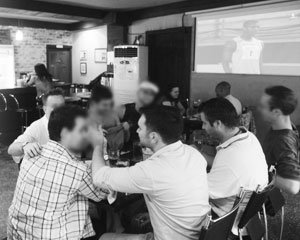
South Korea is indeed a fortunate nation. It is blessed not with intelligent and hard working people but a foreign species able point out the country?s faults and correct its ways. They are the foreign reporters. Typically western, middle aged or older, overweight, bald or balding, their appearance matches their intellect which is bereft of Korean language, history or culture. The group includes me.
한국은 정말 행운의 나라다. 그런데 지적이고 열심히 일하는 한국 사람들 때문에 축복받았다는 게 아니다. 이 나라의 잘못을 지적하고 바른 길로 가도록 방향을 바로잡는 똑똑한 외국인종(人種)들 때문이다. 그들은 바로 외국언론의 기자들이다. 대개 서구 출신으로, 중년이나 그 이상이며, 과체중에다 대머리들인데 그들의 외모로 봐서 한국어와 역사, 문화를 잘 모르는 것도 당연하다. 그 안에 나도 있다.
Ignorance, thankfully, is bliss for the foreign press. During United Nations Secretary General Ban Ki-moon?s visit to South Korea he was asked by a foreign journalist in a long winded, rambling manner whether he was concerned about the human rights situation in North Korea. When I heard the question I was momentarily stunned. If anyone knew about human rights it would be Mr Ban. He has first hand experience of a state that violated human rights. Mr Ban grew up under Park Chung-hee and Chun Doo-hwan.
고맙게도 무지는 외국 언론인들에게 축복이다. 반기문 유엔 사무총장이 한국을 방문했을 때 그는 외국 저널리스트에게서 북한의 인권 상황에 대한 질문을 받았는데, 길고 장황한 질문이었다. 그 질문을 들었을 때 나는 잠시 몸이 얼어붙는 듯했다. 인권에 대해서라면 반기문 사무총장이 누구보다 더 잘 알고 있다. 그는 반(反)인권국에 대한 직접적인 정보를 접하는 이다. 그는 또 박정희와 전두환 정권 시절을 거친 사람이다.
What upset me the most about the foreign reporter?s question was the assumption that he had a clearer grasp of morality than did Mr Ban. I presume as a young western reporter who worked in Iraq he raised similar moral questions to the British and American military commanders and diplomats while he worked there.
그 외국인 기자의 질문이 나를 불편하게 한 것은 그가 반 사무총장보다 더 도덕성에 대해 잘 이해하고 있다고 가정한 것이었다. 이라크에서 활동했던 그 기자는 그곳에서 영국과 미국 군 지휘관이나 외교관들에게 제기한 것과 비슷한 도덕성 문제를 제기했다고 나는 추측한다.
South Korea during Mr Ban?s lifetime has successfully transformed itself into a dynamic democracy. Its citizens are quick to complain, organize and demonstrate. The concerns of South Koreans are not limited by their own borders. As foreign minister Mr Ban raised the tragedy of North Korea?s human rights situation at the inaugural session of the U.N. Human Rights Council. South Korea welcomes North Korean refugees. The country is home to a myriad of non-governmental organizations, think tanks, scholars, politicians and military analysts overtly critical of the murderous Kim Jong-il regime. South Korea?s intelligence agency, I imagine when not being duped by North Korean agents themselves, and the military are implacably hostile to Pyongyang. The country?s political culture is conservative. It abhors anything that smacks of communism.
한국은 반 사무총장의 일생 동안 다이내믹한 민주국가로 성공적으로 변모했다. 시민들은 쉽게 불평하고, 조직할 줄 알며, 시위에 나선다. 한국의 관심은 그 국경 안에만 머물지 않는다. 외교부 장관 시절 반 사무총장은 유엔 인권위원회 출범식에서 북한의 비극적인 인권 상황을 제기했다. 남한은 북한 탈출자들을 환영하고 있다. 남한은 또 김정일 정권에 대해 공개적으로 비판하는 수많은 비정부기구와 두뇌집단, 학자들, 정치인, 군사 분석가들의 나라다. 남한의 정보기관-북한 공작원에 의해 속지 않는다고 생각하는데-과 군부는 북한에 대해 무자비하게 적대적이다. 남한의 정치문화는 보수적이다. 공산주의 기미가 있는 것은 무엇이든 싫어한다.
However, together with the overt criticism there have been efforts by South Korea to forge economic and diplomatic ties. Clearly an all out hostile approach to North Korea?s government will have little effect on its internal behavior. Forging business and cultural ties between a separated people is not only intelligent but sensible given the weapons massed across the DMZ. Would anyone want a repeat of war on the peninsula?
그러나 공개적인 비난과 동시에 남한은 북한과 경제적 외교적 연대를 갖기 위해 노력해왔다. 분명한 것은 북한 정부에 대한 전면적인 적대적 접근은 그 내부에 별 영향을 미치지 못할 것이라는 사실이다. DMZ을 사이에 두고 군사적으로 대치하고 있는 분단된 나라의 사람들 사이에 비즈니스와 문화적 연대를 형성하는 것은 지성적이고, 사려 깊은 일이다. 누가 한반도에서 전쟁이 재발하기를 바라겠는가?
But for the foreign press South Korea?s diplomatic efforts toward North Korea are viewed with suspicion and cynicism. My colleagues don?t seem to realize that problems can only be solved over countless meetings which slowly build trust and friendship. Foreign reporters just don?t think South Koreans have the sophistication to deal with North Korea. Their jaundiced view of South Korean diplomacy lies in their underlying belief that only the U.S. can solve big problems. George W. Bush?s presidency belies that faith.
그러나 외국 언론인들은 북한에 대한 한국의 외교적 노력을 의심의 눈초리로, 냉소적으로 바라본다. 나와 비슷한 외국인 저널리스트들은 산적한 문제는 셀 수 없는 만남을 통해 신뢰와 우정을 천천히 쌓아가면서 해결될 수 있음을 깨닫지 못하는 것처럼 보인다. 외국인 기자들은 남한이 북한을 세련되게 다루고 있다고 생각하지 않는다. 남한 외교정책에 대한 이들의 편견 섞인 시각에는 미국만이 중요한 문제를 해결할 수 있다는 믿음이 기저에 깔려 있다. 그러나 조지 W 부시 미국 대통령이 이끄는 행정부는 그런 믿음을 저버리고 있다.
All Blacks´ Triumph Ruined in Itaewon by - You Guessed it - Kiwis
뉴질랜드 럭비 대표팀의 영광에 흠집 내는 사람들
For a New Zealander the All Blacks, our national rugby team, represents the best about our country. Their distinctive ‘All Black’ uniform, their daring, aggressive play have over more than 100 years forged an enviable record. The All Blacks have won 74 percent of their matches.
But it is just not the unparalleled record of the All Blacks. For me it is more what the All Blacks represent. The team is a melting pot of men who hail from the Pacific, Europe and New Zealand. The All Blacks before they play a game sing the New Zealand national anthem first in Maori, the language of the indigenous inhabitants, and then in English. Just before a match they do a Haka, a Maori dance.
뉴질랜드 사람에게 국가대표 럭비팀 ‘올블랙스’는 나라를 대표하는 최고의 상징과도 같다. 눈에 띄는 멋진 검은색 유니폼과 과감하고 공격적인 플레이는 100년 넘는 역사 동안 남이 부러워할 만한 기록을 세웠다. 경기 평균 74%의 승률을 기록하고 있으니 말이다.
그렇다고 이것이 전무후무한 기록이라고 말하는 것은 아니다. 나에게 그것은 올 블랙스가 대표하는 것 이상의 의미를 갖고 있다. 선수들은 태평양, 유럽, 뉴질랜드 등 다국적 출신이라 일종의 ‘멜팅 폿’이다. 경기 시작 전에 올블랙스는 처음엔 원주민 언어인 마오리 언어로, 그 다음에 영어로 뉴질랜드 국가를 부른다. 그리고 경기 직전에 마오리 춤인 하카(단결력과 전투력을 과시하기 위해 추던 춤)를 선보이기도 한다.
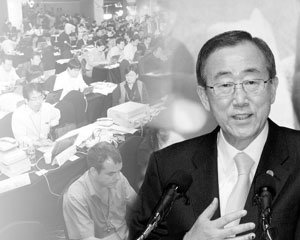
*Kiwi: New Zealander 뉴질랜드 사람
* hail from: come from
*melting pot: 인종의 도가니 a place or situation in which people or ideas of different kinds gradually get mixed together
To see New Zealand´s foremost sporting team perform a Maori dance with intensity and precision is for many, myself included, the highlight of any All Black match. To see the Haka, a passionate dance, performed by white, brown and black guys without instruments accompanied by Maori words and gestures makes me proud to be a New Zealander. The All Black Haka tells me that we are unique as Kiwis but united by our common humanity as evidenced by the make up of the team.
뉴질랜드의 최고 스포츠 팀이 정확하고 열정적으로 추는 마오리 춤은 나 같은 사람들에게는 그들이 펼치는 럭비 경기의 하이라이트다. 백인, 히스패닉, 흑인 선수들이 특별한 악기도 없이 마오리 말과 제스처만으로 열정적으로 추는 하카를 보면 뉴질랜드 사람으로서 정말 자랑스럽지 않을 수 없다. 이들이 추는 하카춤을 보면 이런 생각이 든다. 뉴질랜드 사람으로서 나는 독특하면서도, 팀 구성의 측면에서 알 수 있듯 보편적 인류애로 연결돼 있다는 것이다.
I tend to avoid Itaewon like the plague. But I go to a bar in the area which has access to South African cable TV which televises All Black games. The bar it seems attracts many of the New Zealand males living in Seoul. They are not an attractive lot.
나는 (외국인들이 많이 놀러 가는) 이태원을 전염병처럼 멀리하는 경향이 있다. 그러나 올블랙스의 모든 경기를 방영하는 남아프리카 케이블 TV를 볼 수 있으므로 그곳의 바에 놀러가곤 한다. 그곳은 나뿐 아니라 다른 많은 뉴질랜드 남성을 끌어들이는 곳이긴 하지만 그다지 매력적이지는 않다.
*avoid ~ like the plague: 전염병처럼 멀리하다
Fueled by jugs of beer they seem free from the constraints of polite or acceptable behavior. Watching the All Blacks play Australia earlier this year a group of young Kiwi men used homophobic slurs to insult the happily married coach of the All Blacks. Later on during the televised match one young Kiwi man hurled an awful racist insult at a Fijian born Australian player on the TV. I departed. Depressed not only by the All Blacks loss to Australia that game but most of all by my countrymen´s comments, I mentioned what happened to my wife. Her reply was succinct. ?? not surprised,亮 she said. ?here´s a lot of white trash in your country.亮
이곳에서 몇 잔의 맥주로 ‘에너지가 충만해진’ 이들은 고삐가 풀려 행동이 거칠어진다. 올해 초 그곳에서 올블랙스와 호주팀의 경기를 지켜보고 있는데, 몇몇 뉴질랜드 청년이 결혼 잘해서 잘살고 있는 올 블랙스팀 감독에게 동성애혐오적인 비방을 해댔다. 텔레비전 중계를 보던 한 청년은 피지 출신의 호주 럭비 선수에게도 끔찍한 인종차별적인 모욕을 퍼부었다.
나는 그곳을 떠났다. 내가 우울해진 것은 올블랙스가 호주 팀에 졌기 때문이라기보다는 그 청년들의 언사 때문이었다. 나는 그속에서 무슨 일이 있었는지 아내에게 말해줬다. 아내의 대답은 간명했다. “나는 별로 놀랍지 않아. 당신네 나라(뉴질랜드)에도 백인 쓰레기는 많거든.”
*hurl (abuse or insults) at someone: 누군가에게 (욕을) 퍼붓다
For the All Blacks next match against Australia I donned my ?anhunt.net亮 tee shirt given to me by my homosexual friend and again set off for the Itaewon bar. I placed myself as far away from the group of young Kiwis I had unfortunately sat beside and castigated for their comments. It was no use. Again homophobic remarks rained down on Australian players and the South African referee from New Zealanders around me. An All Blacks match again spoiled by Kiwi morons. Some of my countrymen have a lot of growing up to do.
그런데 올블랙스가 호주와의 다음 경기를 펼칠 때 나는 동성애자인 한 친구가 준 ‘맨헌트닷넷’ 티셔츠를 입고(오해하지 마시라. 나는 한국인 여자와 결혼했다), 그 이태원 술집으로 출발했다. 나는 저번에 운 없게도 뉴질랜드 청년들 가까이 앉아서 그들이 퍼붓는 욕을 다 들어야 했기에 이번에는 그들과 멀찌감치 떨어져 앉았다. 그런데 아무 소용이 없었다. 또다시 상스러운 말들이 호주선수와 뉴질랜드 출신 남아프리카 심판에게 쏟아졌다. 올블랙스의 흥미로운 게임을 다른 누구도 아닌, 버릇없는 그 뉴질랜드 청년들이 다 망쳐놓았다(아이러니가 아닐 수 없다). 그 사람들, (정말) 좀 더 성숙해야 하지 않을까.
*don: put on 입다
*rain down on: ~에 대해 (비난 등이) 쏟아지다
*moron: idiot
이태원의 한 술집에 모인 외국인들(특정 사실과 관련 없음).
7월4일 오전 서울 국회 의원회관 대회의실에서 반기문
유엔 사무총장이 기후변화를 주제로 연설하고 있다.

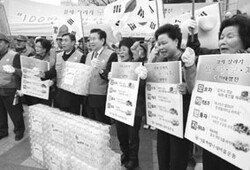















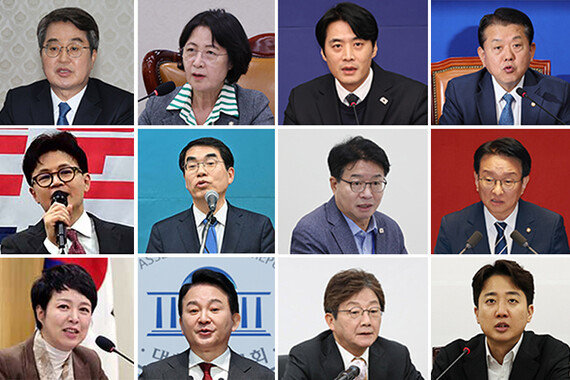
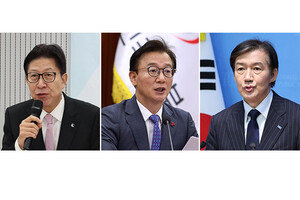

![[밀착취재] 리딩방 70여 명 대부분이 한통속…기망하는 수법까지 매뉴얼화](https://dimg.donga.com/a/380/211/95/1/ugc/CDB/SHINDONGA/Article/69/48/98/bd/694898bd2399a0a0a0a.jpg)

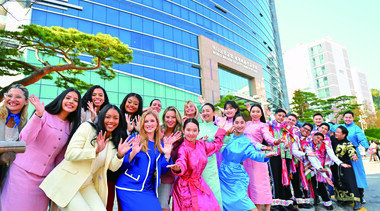
![[지상중계] 제12회 나지포럼, “북미 정상회담 성과내기 어려워”](https://dimg.donga.com/a/380/211/95/1/ugc/CDB/SHINDONGA/Article/69/43/48/32/69434832107aa0a0a0a.jpg)
